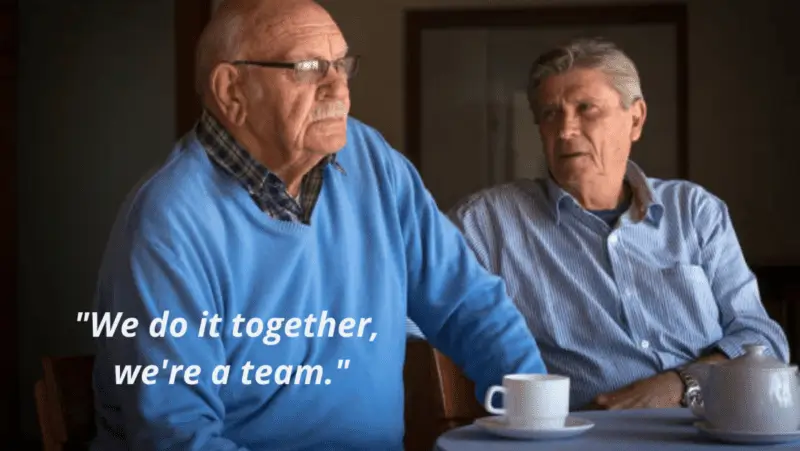Heart Failure Navigator: Taking a Pit Stop for You
Heart Failure Navigator: Taking a Pit Stop for You

Caregiving is tough, particularly when you care for a loved one with a complicated condition like heart failure. While it is easier said than done, as a caregiver it’s important to take time for your own physical and mental health, so that you can stay strong enough to provide care for your loved one. Heart Failure Caregiver Navigator can help you identify and address any red flags in your caregiving situation by talking to your own health care provider about your caregiving situation to identify any red flags.
These resources can remind you of the importance of self-care.
Difficult Emotions are Normal
Difficult Emotions Are Normal: Caregiving isn’t easy. The day-to-day demands and stress take a toll. That toll can leave you feeling a range of challenging emotions. These feelings can leave us doubting our abilities to care for our loved ones, but the most important thing to know is that you are not alone.
What do these emotions look like?
- Anger (at your loved one or other members of the care team.)
- Frustration
- Sadness
- Uncertainty
The range of emotions you may be feeling can be a sign of depression and other mental health issues. Take a screening to find out more.
Community is Key
Support Groups: Finding a community of support can be key in realizing you’re not alone and can provide a safe space where you can share and ask questions of your peers.
- Find out what kind of support group is right for you.
- Determine if an in-person support group or an online forum meets your needs.
- There are a wide range of Facebook support groups as well, these are all independently managed but you can locate groups based on different subjects and themes, including your loved one’s condition, your region, and your role as a family caregiver navigator.
What makes a support group successful?
- A safe haven for sharing true feelings
- A place to make new friends
- Information about resources and coping mechanisms
- Advice on what lies ahead
- Help in dealing with family members
Where to find a group?
- The social work department of hospitals
- Adult day care centers
- Voluntary organizations that deal with your loved one’s condition,
- i.e., WomenHeart, Heart Failure Society of America (HFSA), etc.
- Area Agencies on Aging
- Your faith community
- Parent to Parent USA
- Your physician’s office
CAN’s Facebook Community also provides an online group for caregivers to share a space free of stigma and fear.
Social Media Groups and Accounts! You can find a wide range of caregiver support goups on platforms such as Facebook. These are independently managed and monitored and may be segmented based on the disease state of your loved one, your region, or even a local place of worship or community-based organization. This is a great way to integrate this caregiver conversation into a platform you may already be frequenting.
10 Tips for Caregivers
These 10 tips are designed for caregiver navigator in a variety of caregiving scenarios, but are particularly helpful for those caring for a loved one with heart failure, specifically HFpEF. This is a stressful role, so ensure you are getting the help you need and leveraging the available resources.
- Seek support from other caregivers. You are not alone!
- Take care of your own health so that you can be strong enough to take care of your loved one.
- Accept offers of help and suggest specific things people can do to help you.
- Learn how to communicate effectively with doctors.
- Caregiving is hard work, so take respite breaks often.
- Watch out for signs of depression, and don’t delay getting professional help when you need it.
- Be open to new technologies that can help you care for your loved one.
- Organize medical information so it’s up-to-date and easy to find.
- Make sure legal documents are in order.
- Give yourself credit for doing the best you can in one of the toughest jobs there is!
Caregiver Help Desk
Being a caregiver can feel isolating. Even with friends and family around, they may not be able to understand the unique challenges of your role and may not be able to answer tough questions you have.
That’s where CAN’s Caregiver Help Desk comes in. Connect with a caregiving expert to find a listening ear and the support you need. CAN’s Caregiver Help Desk is an on-demand resource you can utilize in a way most convenient to you – call, chat, or e-mail – to connect with caregiving experts to find answers and support in your specific circumstance.
Call (855) 227-3640 or visit The Help Desk to connect via chat or e-mail.









